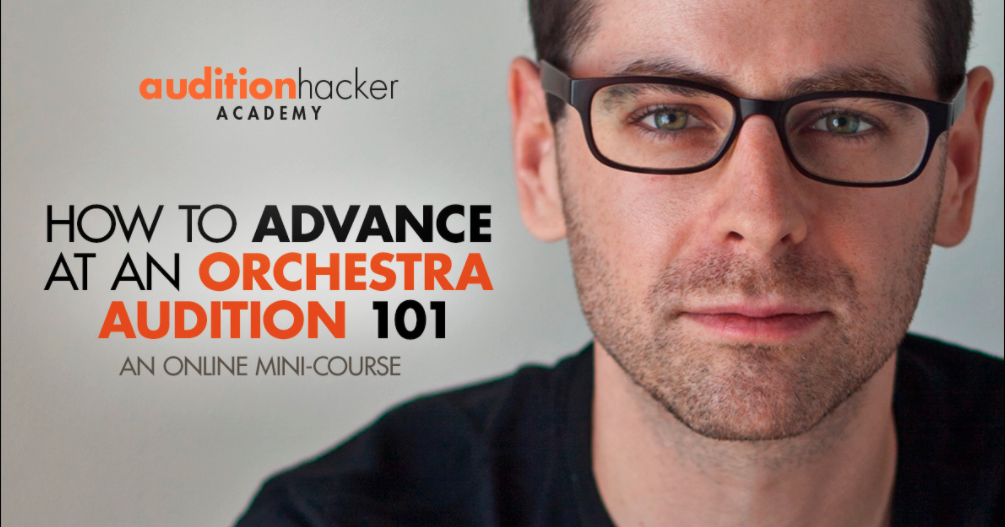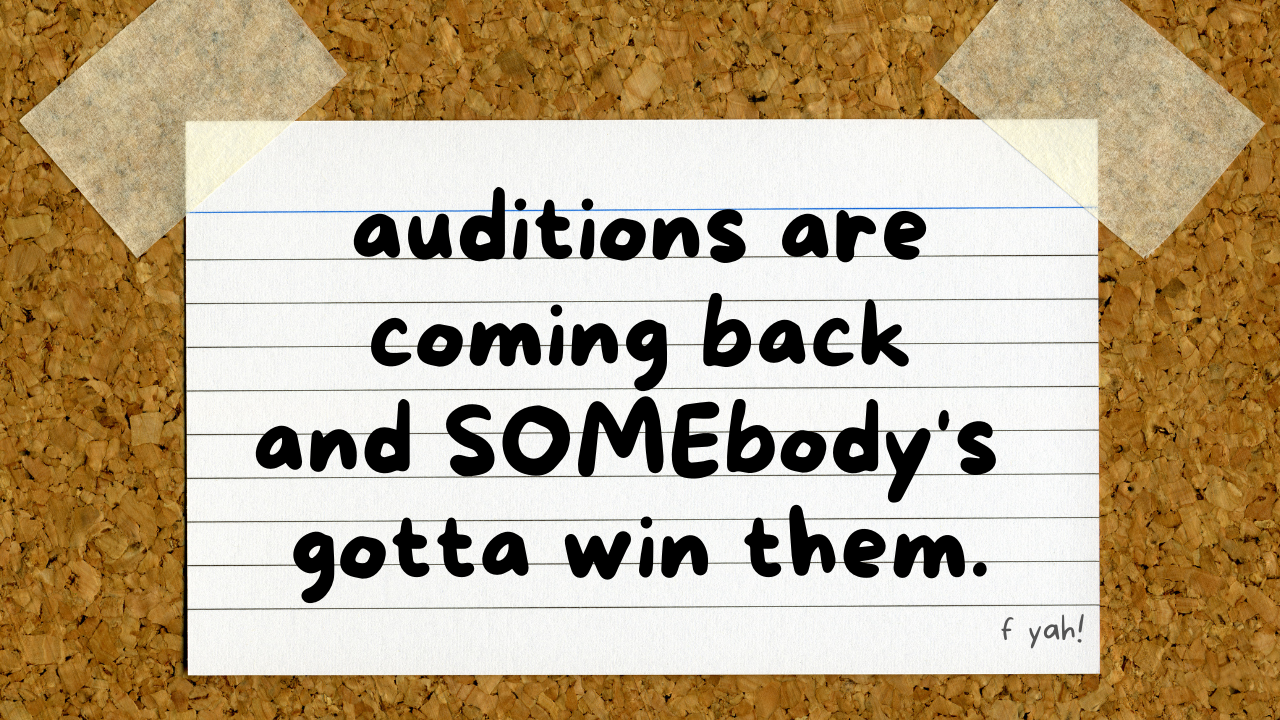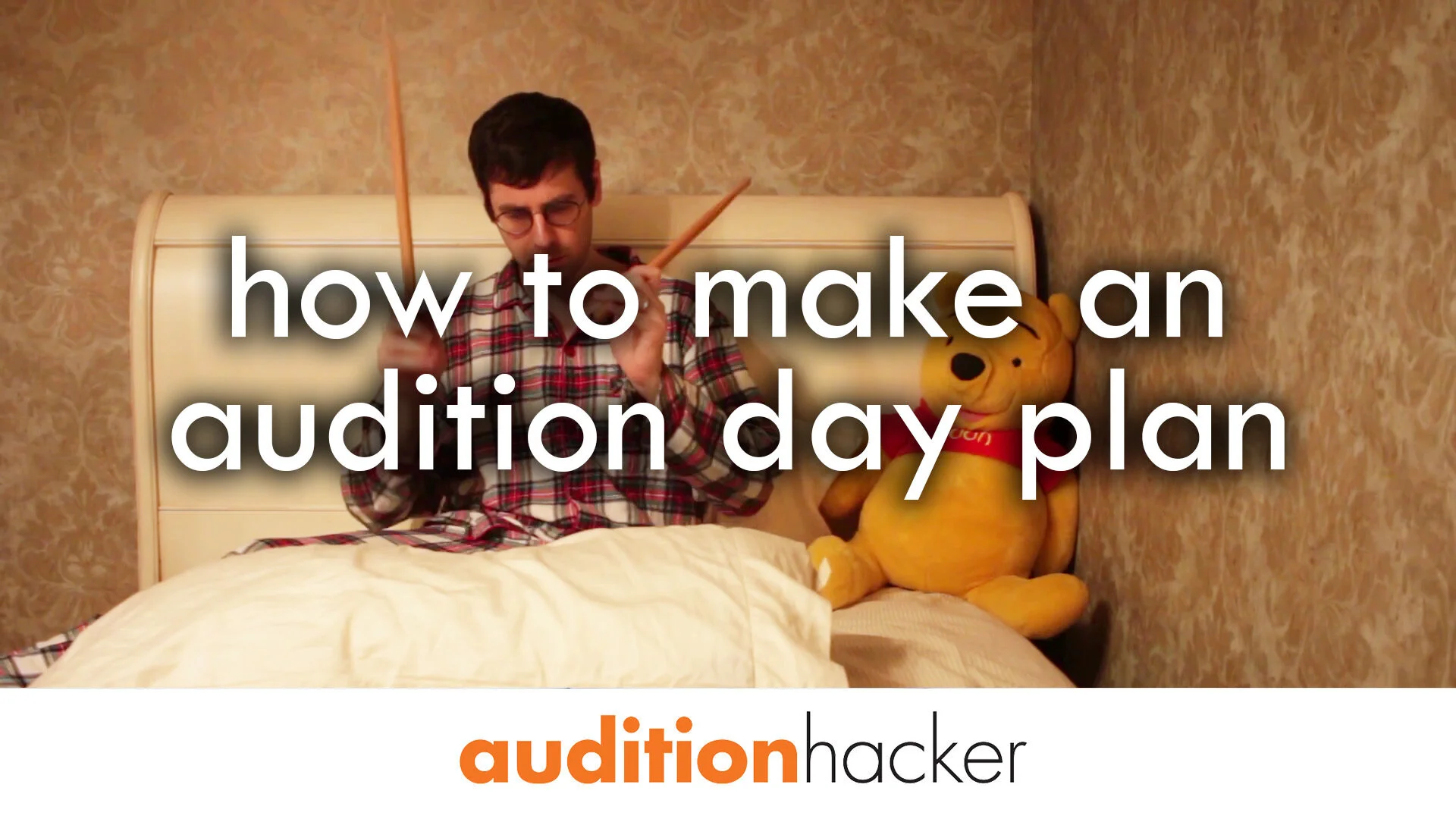it's day 6 of the 12 days of auditions! it's the video series where each day i cover a different topic on how to take auditions. yesterday was day 5: how to organize your audition preparation. make sure to join the auditionhacker facebook group to see the rest of them.
here's a transcription of the video:
when jim + pam from the office were about to run the michael scott’s dunder mifflin scranton meredith palmer memorial celebrity rabies awareness pro-am fun run 5k race, for the cure, this was their strategy conversation:
jim: so what's your strategy for this race?
pam: well i'm gonna start fast.
jim: mm-hmm.
pam: then i'm gonna run fast in the middle.
jim: what?
pam: then i'm gonna end fast.
jim: why won't more people do that?
pam: cause they're just stupid.
our race is audition preparation. we get to decide how much to practice each day, from the day we get the list until the day of the audition. so should we use the pam beasley method and practice 21 hours a day every day until the audition? and how much time should we spend on other things, like watching the office reruns and making ramen noodles with friends?
want a jump on audition preparation?
enroll in my new online mini-course, called how to advance in an orchestra audition 101. it's free, and it'll be delivered to you over email starting november 10th.
in this video i’m going to help you answer the question, how many hours should i practice each day for auditions. this is day 6 of the #12daysofauditions, where each day i cover a different topic on how to take auditions.
obviously, 21 hours a day isn’t going to work. our brains would explode. our bodies would fall apart. you’re not going to win an audition quicker by practicing more. how much you practice is a tool that you can use to affect your productivity. you can turn the dial up or down to affect how productive you are during your practice sessions. here are some of the considerations:
the main reason to practice a lot is to get better.
it’s math. practicing is when you’re solving problems and learning stuff. and every hour you practice, the idea is you’ll solve more problems.
and that’s true...until you start reaching your limit, and then the more you practice, the better you decidedly don’t get.
there’s 2 main things stopping you from practicing a million hours a day: your body, and your brain.
physically, your body will only allow you to do so much. you might actually have to limit how much you’re going to train every day, like an athlete.
and how much you practice is instrument-specific: you could overplay and injure yourself, and at the very least sound worse. in the big picture, that’s totally unproductive and basically never worth it.
you should learn your limitations, so that you can plan accordingly. and if you feel physical stress or pain, do the right thing: stop.
mentally, you can go crazy from practicing.
this is what i call zombie-brain. it’s when you practice so much that you lose the ability to make decisions or generate ideas. and your productivity will wind down to zero. this depends on who you are, what your personality is like, and how your brain works.
me?
i’ve never been prone to injuries, so far (knock on wood). i can prepare for auditions for 8-10 hours a day, which is no big deal for me. but i know that not all instruments are like that, and not all people are either.
however, i’ve found some certain ways to trick myself out of zombie-brain, when it does happen. one of those is watching tv for a few minutes every so often while i’m practicing… which is a strategy called the pomodoro method. there’s an explanation of that on today’s blog at auditionhacker.com/day6. another one is that my practice falls into two categories - creative practice and mindless practice. when i run out of creative energy, i do something mindless so that i can still be productive.
to figure this out for yourself, you should just start experimenting. do it smartly, do it gradually, and find your own limits. don’t forget to take breaks and especially don’t forget to take days off.
tomorrow we’re talking about the perfect practice session. see you then.












i've worked with hundreds of musicians on audition preparation. and nothing - NOTHING - has been as effective and life-changing as when they start self-recording the right way.